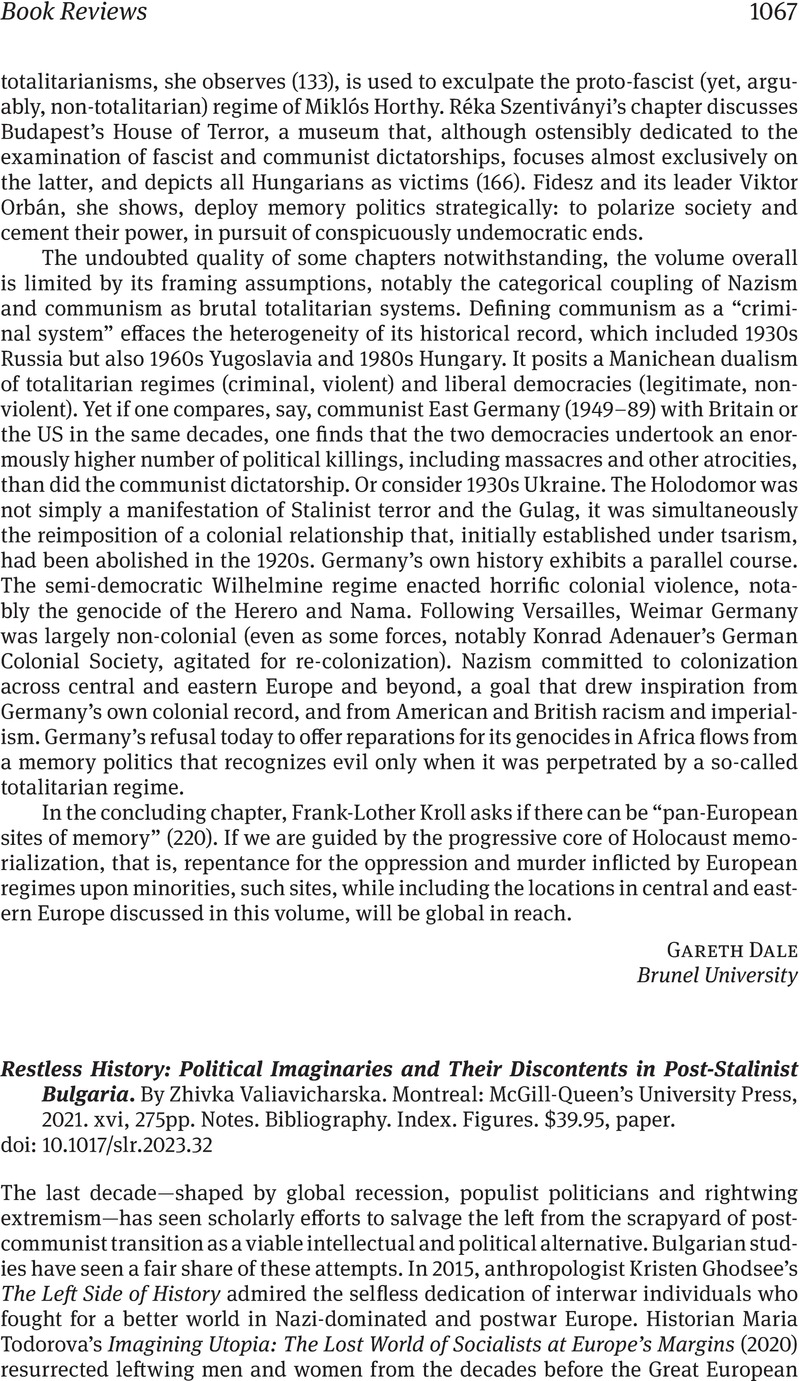No CrossRef data available.
Article contents
Restless History: Political Imaginaries and Their Discontents in Post-Stalinist Bulgaria. By Zhivka Valiavicharska. Montreal: McGill-Queen's University Press, 2021. xvi, 275pp. Notes. Bibliography. Index. Figures. $39.95, paper.
Review products
Restless History: Political Imaginaries and Their Discontents in Post-Stalinist Bulgaria. By Zhivka Valiavicharska. Montreal: McGill-Queen's University Press, 2021. xvi, 275pp. Notes. Bibliography. Index. Figures. $39.95, paper.
Published online by Cambridge University Press: 12 May 2023
Abstract
An abstract is not available for this content so a preview has been provided. Please use the Get access link above for information on how to access this content.

- Type
- Book Review
- Information
- Copyright
- Copyright © The Author(s), 2023. Published by Cambridge University Press on behalf of the Association for Slavic, East European, and Eurasian Studies


